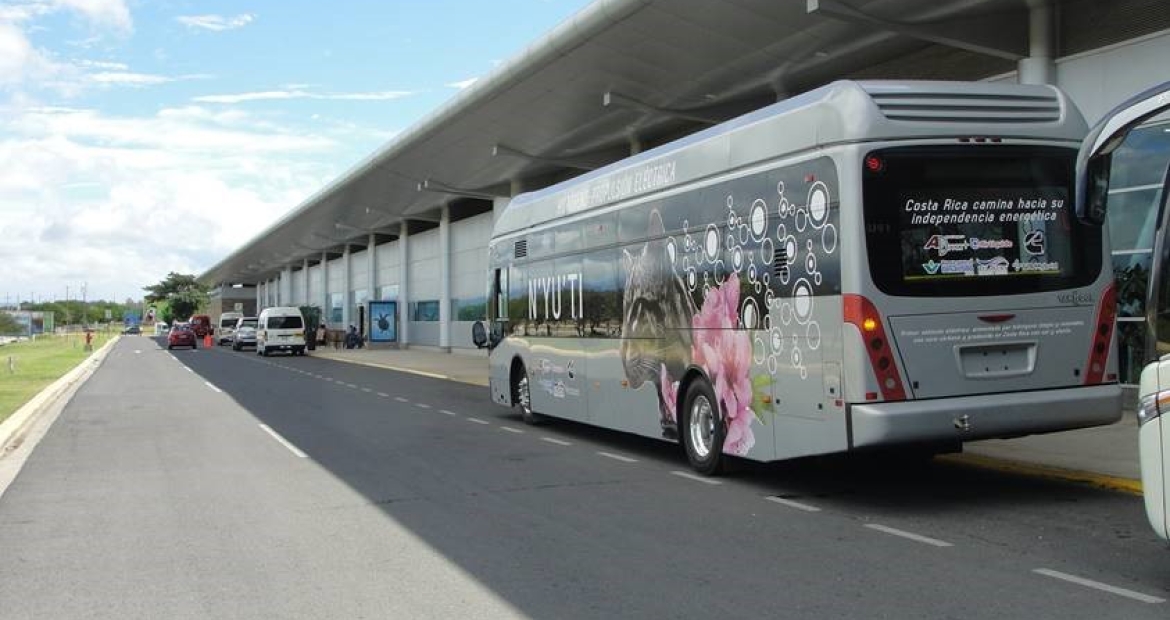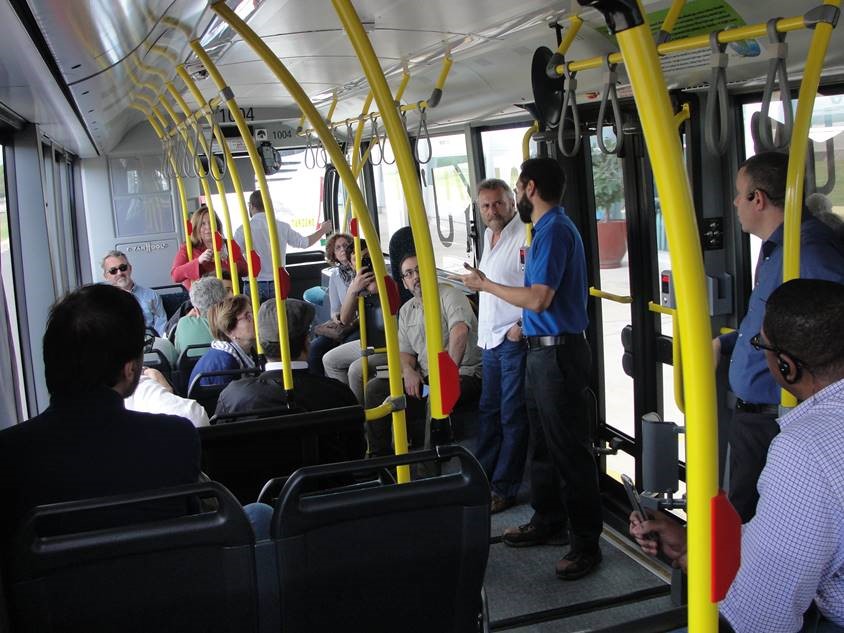Four Answers to Your Questions about Hydrogen Fuel Cell Technology
By Katie Zarich, Manager of External Communications

Cummins has joined other industry partners to research how hydrogen fuel cells can power commercial vehicle applications, recognizing that this technology is likely to play a role in the broad portfolio of power solutions Cummins will provide to its customers in the future.
The demonstration project is a transit bus, called N'yu'ti, that can travel more than 200 miles on 38 kilograms of compressed hydrogen in partnership with Ad Astra Costa Rica and others. With limited petroleum resources, Costa Rica is working to develop hydrogen as a power source. That makes it a good place for this research.

National Hydrogen and Fuel Cell Day is celebrated on October 8 (10.08) in the United States, in recognition of the atomic weight of hydrogen - 1.008. Earlier this year, Cummins joined the Hydrogen Council, a global coalition exploring and promoting hydrogen as a clean energy source to help meet the world’s climate challenges.
Here are the answers to four key questions you may have about hydrogen fuel cell technology:
Q. How does hydrogen fuel cell technology work?
Fuel cells generate electricity through a chemical reaction of hydrogen and oxygen without combustion, creating zero-emissions. Hydrogen gas is passed through a fuel cell stack where the pure hydrogen mixes with atmospheric oxygen to generate electricity, which is used to create electric power.
Q. What markets are hydrogen fuel cells viable in today?
Several major automakers offer fuel cell vehicles on a limited basis and fuel cell buses are in service in several states. There are thousands of fuel cell-powered forklifts working around the clock in America's warehouses and factories, and fuel cells are powering some data centers, communications networks, retails sites, and municipal facilities across the country.
Q. What is the state of infrastructure to support hydrogen electric vehicles?
Hydrogen still faces technical challenges regarding its production, transportation and distribution, but many in the industry are working to address these issues and to scale up the availability of the technology. A growing network of dozens of hydrogen fueling stations are open for business in California and currently under development in other states in the U.S. More hydrogen infrastructure is needed to support fuel cell electric vehicle commercialization and job growth.
Q. What’s new with N’yu'ti?
N'yu'ti continues to show hydrogen fuel cells may be viable in commercial vehicles in the future. "This bus is evidence that shows the world that we can strive to be better, to be cleaner. It also reminds the world to not just stop at what works or what is comfortable, but to push further, to find new and better solutions," said Dr. Franklin Chang Diaz, Chairman of Ad Astra.
"In this year, N'yu'ti has transported a variety of passengers. From the general public to foreign dignitaries, to the president of Costa Rica and his cabinet. N'yu'ti has brought many positive things to Costa Rica, and therefore, we would like to continue bringing more buses and developing the infrastructure to provide for a robust hydrogen economy," he continued.
Author Profiles

Katie Zarich, Manager of External Communications
Katie Zarich is Manager of External Communications for Cummins Inc. She joined the Company in 2015 after more than a decade working in government and the nonprofit sector. [email protected]